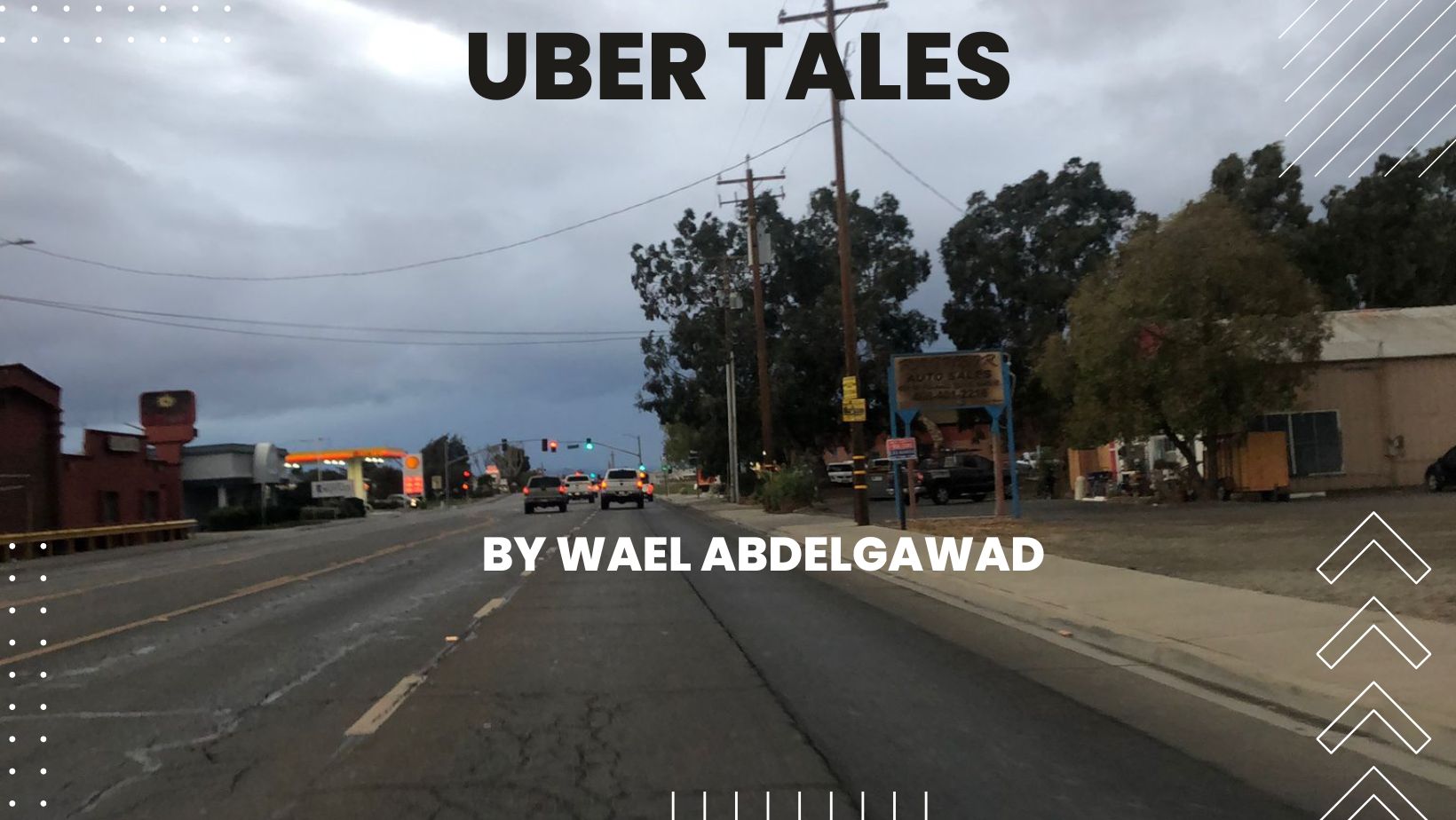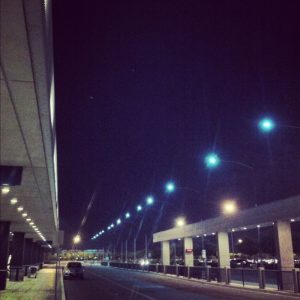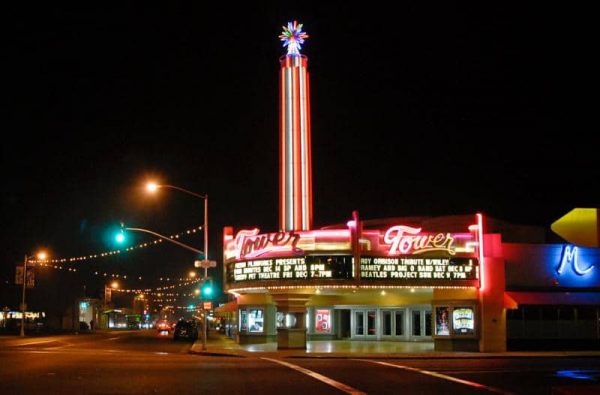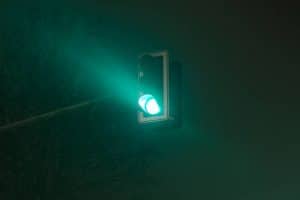#Life
Uber Tales: A Driver’s Journal
I begin my shift immediately after Maghreb. We’re in the middle of a California heat wave, and this is not just California but the Central Valley, which is like the center rack in a brick oven. The heat is a blow from a fist made of lava.
Published

In a new monthly series for MuslimMatters, Uber Tales, Wael Abdelgawad shares with us real life stories and experiences from his shifts as an Uber driver.
These Uber tales (and Lyft too) are true. I have changed the names, and sometimes I combine stories from different days into a single, more cohesive narrative. However, aside from that, these events are all accurate; word-for-word, just as I experienced them.
Keep supporting MuslimMatters for the sake of Allah
Alhamdulillah, we're at over 850 supporters. Help us get to 900 supporters this month. All it takes is a small gift from a reader like you to keep us going, for just $2 / month.
The Prophet (SAW) has taught us the best of deeds are those that done consistently, even if they are small. Click here to support MuslimMatters with a monthly donation of $2 per month. Set it and collect blessings from Allah (swt) for the khayr you're supporting without thinking about it.
Thursday, June 31, 2022
8:25 pm – Tools of the Trade
Bismillah. I begin my Uber shift immediately after Maghrib. We’re in the middle of a California heat wave, and this is not just California, but the Central Valley, which is like the center rack in a brick oven. The heat is a blow from a fist made of lava. There’s a breeze, but it feels like the breath of a Covid-ridden giant.
I’m armed with the tools of the trade: a cold can of caffeinated water, smartphone, pocket knife, expandable baton for extreme self defense situations, barf bags for the alcoholics, small water bottles for the same, cleaning supplies, citrus air freshener, handheld vacuum, hydraulic jack, and extra socks and underwear. I turn on the app, it pings with the first ride, and we’re rolling.
8:39 pm – Airport Pickup

9:15 pm – Are You Muslim?
I pull into a seedy shopping center on the South Side to pick up Dolores at a hair and fingernails shop. Two young women are waiting there, one Black and one Latina. The Latina is Dolores. Her hair is dyed blond, and she’s wearing tight pink pants and a pink halter top. Her shoulders, arms, and stomach are bare, and her skin is marked with many tattoos. She looks very ghetto.
They get in, I confirm her name and destination, and we start on our way. Immediately Dolores says, “Are you Muslim?” I say “Yes, how did you know?” She says, “From your cap.”
We drive in silence for a few minutes, then Dolores says, “Do you think there is such a thing as a bad Muslim?”
Oh, here we go. I expect she has heard some negative things about Islam and she wants to either question me in a spirit of true curiosity, or nail me to the wall. I imagine she might ask me about oppression of women, FGM, or terrorism.
“From one perspective,” I tell her, “a bad Muslim would be one does not practice the faith at all. But more importantly, a bad Muslim is one who hurts other people. The Prophet Muhammad 
After a minute, she says the last thing I expect: “The reason I ask is because I’m Muslim, I’m a convert. I used to go to the mosque by the university, I used to wear hijab and everything. But some of the sisters criticized me for my tattoos. They made me feel like I was a bad Muslim. And I think they’re hypocrites because I know they’re not perfect Muslims either. So I stopped going. What do you think? Am I a bad Muslim?”
Wow. What a surprise. I tell her, “Unfortunately what you experienced is common. There are a lot of Arabs and South Asians who think that they know better than converts, or that they are somehow better Muslims, because they were born into Muslim societies. Forget them and forget labels like good Muslim and bad Muslim. The only thing that matters is your relationship with Allah 

“That makes me feel better,” Dolores says. “Because lately I feel bad about it, I feel like my Quran is calling me. So I feel like I need to come back.” She begins to cry.
“For me,” I tell her, “one of the most important reasons why I practice my faith, and why I’m grateful to Allah 


She tells me that she had a friend at the Shaw Avenue mosque, a woman named Najat, who was teaching her and was good to her. I tell her to stay friends with Najat, and with anyone else who was kind to her, and avoid all those other people. When we arrive at our destination I open the trunk and give her a copy of my book, Pieces of a Dream, since the character (Louis) is also a convert and faces some of the same challenges.
She thanks me, then she and her friend walk into a dark parking lot behind a building. This is not a good neighborhood, so I look to make sure they are okay. Dolores is stripping off the pink halter top and pants and putting on jeans and a shirt. Going home to her parents, maybe? I leave them alone and I drive on.
9:50 pm – What’s the Price?

On the way, she asks me about the worst parts of my job. It’s funny how many people ask this. They don’t want to hear the good stuff. They only crave horror stories.
I tell her: loud or aggressive drunks, people fighting in the car, people being assaulted or robbed on the street (I can’t pass by, I have to intervene), people making messes, people needing to throw up, people carrying guns or drugs, people coming on to me (men, women, and couples).
“If they came on to me,” she says, “I would ask them, what’s the price?”
I process this. Am I misunderstanding her? “You mean…?”
“If the price was a thousand dollars,” she elaborates, “then why not?”
“It wouldn’t depend on whether you were attracted to that person, and liked them?”
“Not for a thousand dollars. That’s a good price, don’t you think?”
“I guess it depends,” I say, “on what your self-respect is worth.”
She doesn’t like that answer, and we drive in silence.
10:15 pm – They’re All Scared
Young Black man named Devon, on the South Side. Bad neighborhood. “Thanks for coming to get me,” he says. “Four other Uber drivers canceled on me. Guess they’re all scared to come down here.”
We talk, and I learn that he is a robotics student at Fresno State. He believes that within fifteen years robots will take over fifty percent of existing American jobs. That includes telephone customer service, restaurant jobs, retail positions, long haul trucking, and others. What that means for the American way of life, and for the working class who rely on such jobs, Devon cannot say. But he’s positioning himself to ride the wave, not to get swept under.
10:30 pm – Allah  Will Provide
Will Provide
I take a short break. I park in the lot of a Catholic school, next to a flood control district. It’s the middle of Dhul Hijjah; the moon is full and shining on the little lake like a promise of relief. And I need it. I’m supposed to get married this year, but I’m broke. Allah 

I do a Spanish lesson on my phone, then I get out of the car and stretch upward, reaching for the moon. Touch my toes, bend sideways and twist from the waist. I run through a few martial arts combos, practicing entries from Silat. Parry the punch and take a flanking step, throw a hammerfist, palm strike, elbow, knee. Right side and left.
The hot night wallows like a hippo in the mud. Back to work.
11:00 pm – Flying Through the Green Lights
People come off of work, go to the clubs, head home from house parties. Some chatter or ask questions, some sit silently in the back, to the point that I forget they are there. Truly. I’ve been doing this so long that I follow the GPS subconsciously, while my conscious mind contemplates the novel I’m writing, or my daughter’s upcoming birthday, or the life of Ali ibn Abi Talib 
I don’t journal every ride, only the interesting ones.
The weather has cooled from Sahara ghibli down to merely stifling. I roll down the windows and let the night air pour through the car like a warm caress. On my way to a pickup, I drop my foot onto the accelerator like a brick, and fly through one green light after another, wind whipping through the car. This is a city of half a million, and I know these streets like my own face. I know the front-end-wrecking dips, the hidden speed bumps, the train tracks that lift you up and drop you like an anchor. The apartment complex where an Uber driver got murdered last year, the canal where they found a body floating, the gas station where they found a dead man in his car at dawn. Between rides, I know where I can safely rest, and where I can’t. The little parks where I can pray Isha. The sheltered spots where I can urinate in the bushes, and wash my hands from a water bottle.
If that sounds uncouth, sorry. I’m drinking coffee to stay awake, and I can’t drive across town to my house every time I need to pee.
12:47 am – I Know You
I pull into the parking lot behind an expensive restaurant and roll down all the windows, because at this time of night the only people coming out of restaurants are kitchen workers, and they stink of dirty grease, dishwater, and garbage. Not that it’s their fault. They perform a necessary job, and they deserve a ride just like anyone else. But I do have to air the car out, and sometimes spray a bit of citrus on the seats.
Joey is a short young man of 25 or so, with a thick head of hair and a light mustache. He confirms my name, as many passengers do, and I say, “That’s me.”
“I know,” he says. “I don’t know your name from the app, I know it because I know you.”
Turning in my seat, I look at him.
“You don’t remember me, do you?”
As a matter of fact, I do. He was my martial arts student when he was 10 and 11 years old. He had a best buddy named Dougie, and they were inseparable.
Truthfully I remember Dougie better (though I don’t tell Joey this), because he was a prodigy. He was a small, pudgy boy with long hair, but he had a mind like a computer, and his physical form was perfect. His feet angled just right in the stances, his kicks snapping like a flag in the wind, his posture vertical. He was already a brown belt at the age of 11. Part of this was because his father, who was Korean, had been teaching him Hapkido since Dougie was old enough to walk. At least, when the father wasn’t in prison, which was often.
By the age of 12, Dougie became arrogant and stopped paying attention in class, then dropped out. I heard later, through the grapevine, that he got caught selling marijuana and went to juvie.
Now, in the car, Joey tells me that he cut off his friendship with Dougie years ago. “He’s still into drugs,” Joey says. “I’m not down with that. I work, I take care of my mom.”
Joey asks what happened to Sensei Jason, who was my own senior instructor in Jujitsu. I tell him Jason started using meth five years ago, and quit teaching. He was homeless for a while, and now is married in another city. I have not seen him in years. I took over the class after he left.
Joey tells me all he learned from me. How to roll, how to do a hip throw and a round kick. I’m surprised and embarrassed, as I have not given Joey a thought in years.
“Every Ramadan I think of you,” Joey says. “You were the one who told me what Ramadan is. I remember you were fasting while training. You’d get thirsty and hungry, but you kept going. When it was time to break fast you took a short break to drink and eat. One time, Maria, she didn’t know you were fasting, she went up to you all annoyed and said, “Sir, can’t you get through a class without eating?”
We both laugh at that.
It Is The Heart
Later I tell this story to my book editor Amy. She says, “It makes me sad when I hear stories like Dougie’s. People who waste their potential and talents.”
That’s true, but here’s the thing: Success is ultimately not about how intelligent, physically gifted, or talented you are. Rather, success in life comes down to one thing: the heart. Do you have a spirit that is striving but content? That is faithful, kind, and self-assured? Are you willing to look within and make changes if you don’t like what you see?
After all, didn’t the Prophet 
“Verily, in the body is a piece of flesh which, if sound, the entire body is sound, and if corrupt, the entire body is corrupt. Truly, it is the heart.” [Ṣaḥīḥ al-Bukhārī; 52]
2:15 am – Sweaty and Disoriented
My eyelids are coming down like clouds over the moon. I pull into my garage at home, close it remotely, then immediately recline the car seat and fall asleep. Later, I wake up sweaty and disoriented. I stumble into the house and fall into bed without changing my clothes.
Next: Uber Tales, Part 2: Hajjis, The Power Of Dua, And The Indigo Night
* * *
Uber Tales will appear once a month inshaAllah.
Reader comments and constructive criticism are important to me, so please comment!
See the Story Index for Wael Abdelgawad’s fiction stories on this website.
Wael Abdelgawad’s novels – including Pieces of a Dream, The Repeaters and Zaid Karim Private Investigator – are available in ebook and print form on his author page at Amazon.com.
Keep supporting MuslimMatters for the sake of Allah
Alhamdulillah, we're at over 850 supporters. Help us get to 900 supporters this month. All it takes is a small gift from a reader like you to keep us going, for just $2 / month.
The Prophet (SAW) has taught us the best of deeds are those that done consistently, even if they are small. Click here to support MuslimMatters with a monthly donation of $2 per month. Set it and collect blessings from Allah (swt) for the khayr you're supporting without thinking about it.
Wael Abdelgawad's novels can be purchased at his author page at Amazon.com: Wael is an Egyptian-American living in California. He is the founder of several Islamic websites, including, Zawaj.com, IslamicAnswers.com and IslamicSunrays.com. He teaches martial arts, and loves Islamic books, science fiction, and ice cream. Learn more about him at WaelAbdelgawad.com. For a guide to all of Wael's online stories in chronological order, check out this handy Story Index.


Faith, Identity, And Resistance Among Black Muslim Students

Moonshot [Part 12] – November Evans

From The Prophets To Karbala: The Timeless Lessons Of Ashura For Muslims Today

Moonshot [Part 11] – The Fig Factory

Nationalism And Its Kurdish Discontents [Part II of II]: Kurds And Turkiye After Ottoman Rule

Moonshot [Part 11] – The Fig Factory

Moonshot [Part 12] – November Evans

Moonshot [Part 10] – The Marco Polo

Moonshot [Part 9] – A Religion For Real Life

Genocidal Israel Escalates With Assault On Iran

[Dhul Hijjah Series] Calling Upon the Divine: The Art of Du’a (Part 1)

IOK Ramadan 2025: Four Steps | Sh Zaid Khan

IOK Ramadan 2025: Do Your Best | Sh Zaid Khan

IOK Ramadan 2025: Giving Preference to Others | Sh Zaid Khan





UmmSumayyah
August 3, 2022 at 11:19 AM
Masha Allah Br Wael this is a nice series. I especially like how you relate to people who are struggling with their deen without judging them, but seeking to inspire them. It’s like you see (and strive to bring out) the goodness within them even if they can’t see it themselves. And that is a beautiful quality to have – may Allah raise your ranks through it.
I deeply appreciate your many years of writing, and hope to also become a source of immense good to many. May Allah keep you steadfast and preserve you so we can continue to enjoy and benefit from your work. Ameen
Wael Abdelgawad
August 3, 2022 at 1:24 PM
UmmSumayyah, jazaki Allah khayr for your comment about my writing, and your dua’. I happened to meet a struggling Muslim that night, but it doesn’t always happen, of course.
I am sure you are already a source of good to many, whether you realize it or not.
Umm ismael
August 7, 2022 at 5:58 AM
MashaAllah you are gifted. May Allah increase the power in your pen and provide you from where you did not even imagine . BarakAllahufeekum!!?